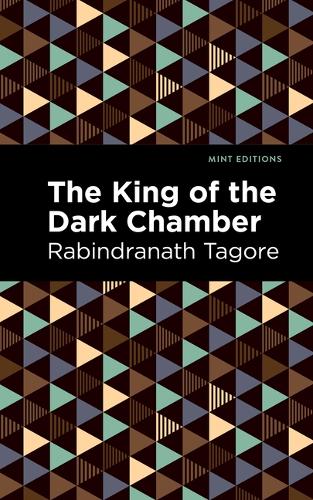
The King of the Dark Chamber
(Hardback)
Publishing Details
The King of the Dark Chamber
By (Author) Rabindranath Tagore
Contributions by Mint Editions
Mint Editions
Mint Editions
19th January 2022
United States
Classifications
General
Non Fiction
Physical Properties
Hardback
66
Width 127mm, Height 203mm
Description
The King of the Dark Chamber (1918) is a play by Rabindranath Tagore. Translated into English by Tagore after he received the 1913 Nobel Prize in Literature, The King of the Dark Chamber is a symbolic drama exploring themes of faith, power, citizenship, and love. Part meditation on human government, part reflection on humanitys connection to god, Tagores play is a masterpiece of Indian literature. My faith is, to go on obeying the Kingit does not matter whether he is a real one or a pretender. What do we know of Kings that we should judge them! It is like throwing stones in the darkyou are almost sure of hitting your mark. I go on obeying and acknowledgingif it is a real King, well and good: if not, what harm is there What is the nature of kingship If a nation is prosperous, and its people happy, should they question their ruler Such questions abound in The King of the Dark Chamber, a symbolic story of a King who rules through absence alone. While he is more widely known as a poet, Tagore was also a gifted playwright who used the stage to explore timeless, universal themes. With a beautifully designed cover and professionally typeset manuscript, this edition of Rabindranath Tagores The King of the Dark Chamber is a classic of Indian literature reimagined for modern readers.
Author Bio
Rabindranath Tagore (1861-1941) was an Indian poet, composer, philosopher, and painter from Bengal. Born to a prominent Brahmo Samaj family, Tagore was raised mostly by servants following his mother's untimely death. His father, a leading philosopher and reformer, hosted countless artists and intellectuals at the family mansion in Calcutta, introducing his children to poets, philosophers, and musicians from a young age. Tagore avoided conventional education, instead reading voraciously and studying astronomy, science, Sanskrit, and classical Indian poetry. As a teenager, he began publishing poems and short stories in Bengali and Maithili. Following his father's wish for him to become a barrister, Tagore read law for a brief period at University College London, where he soon turned to studying the works of Shakespeare and Thomas Browne. In 1883, Tagore returned to India to marry and manage his ancestral estates. During this time, Tagore published his Manasi (1890) poems and met the folk poet Gagan Harkara, with whom he would work to compose popular songs. In 1901, having written countless poems, plays, and short stories, Tagore founded an ashram, but his work as a spiritual leader was tragically disrupted by the deaths of his wife and two of their children, followed by his father's death in 1905. In 1913, Tagore was awarded the Nobel Prize in Literature, making him the first lyricist and non-European to be awarded the distinction. Over the next several decades, Tagore wrote his influential novel The Home and the World (1916), toured dozens of countries, and advocated on behalf of Dalits and other oppressed peoples.
